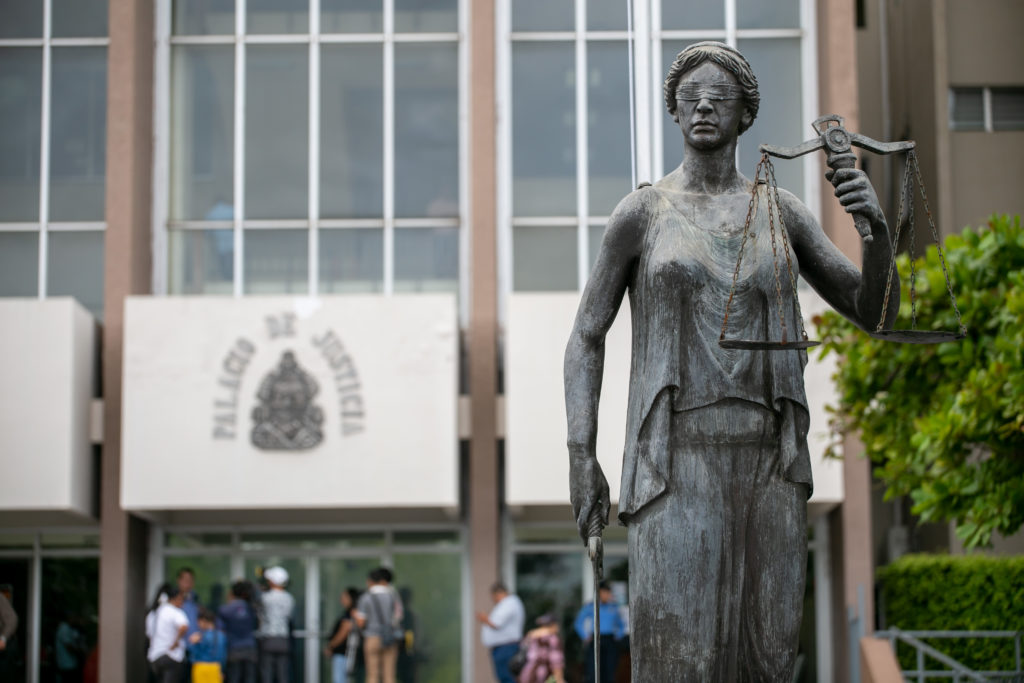On September 20, 2024, Honduras’ Supreme Court declared the Economic Development and Employment Zones (ZEDE) unconstitutional, annulling a regulatory framework passed by the National Assembly in 2013. Even though magistrates disagree about the legal consequences of the resolution, they reached a unanimous decision, stressing that the ZEDEs violate fundamental constitutional articles. While the government praises the resolution, investors say it’s “abusive.” This has sparked a debate about the possibility of charging public officials who promoted the ZEDEs with treason.
Text: Luis Escalante
Photography: Fernando Destephen
The judicial resolution, which was signed by 15 Supreme Court magistrates on September 20, was unanimous. It annulled the legal framework that regulated the ZEDEs, also known as “charter cities,” since September 6, 2013.
The magistrates argued that ZEDEs “violate fundamental constitutional articles” and should therefore be repealed. A majority ruled in favor of repealing the ZEDE since its inception, thereby nullifying the reform of constitutional articles 294, 303, 304, and 329; the ZEDE law; guarantees and privileges granted to investors for a 10-year period should the law be repealed; and a resolution issued by the court itself on June 14, 2021, which granted a special jurisdiction to the ZEDEs.
The resolution was passed two years after the National Assembly repealed the ZEDE law and the constitutional articles that had been amended to allow these regimes. Although the law had been repealed, the constitutional amendment was not ratified in the following legislative session, which is why ZEDEs continued to operate legally for more than two years.
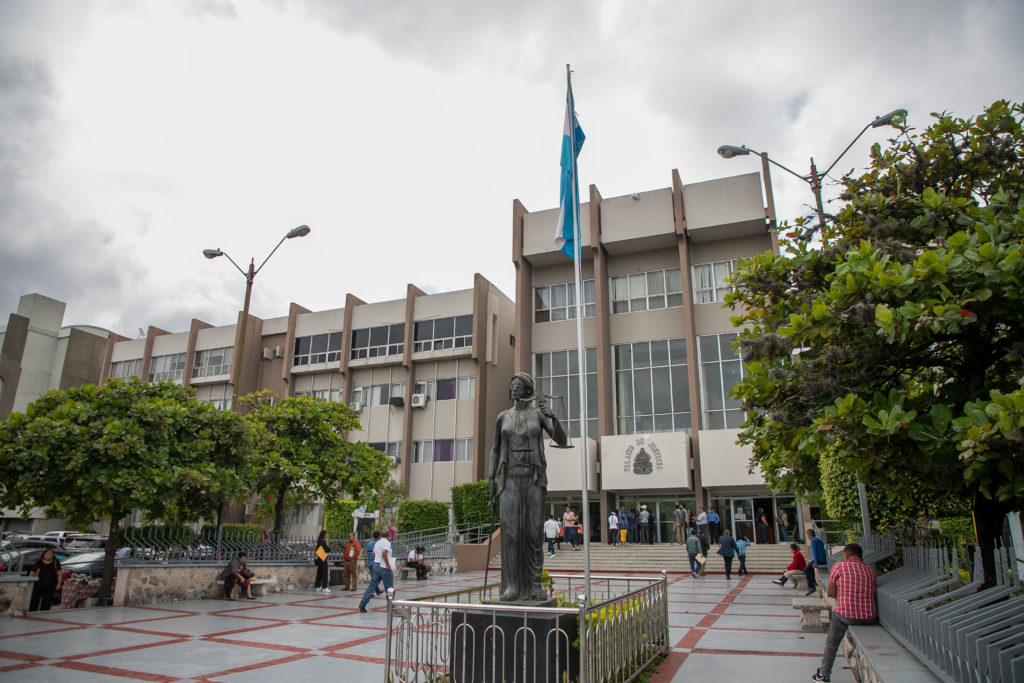
During the administration of Juan Orlando Hernández, Honduras signed a treaty with the State of Kuwait that sought to protect investments in the ZEDEs for a period of 50 years. But despite the Supreme Court’s retroactive resolution, it’s not clear whether the ZEDEs have recourse to that legal instrument.
ZEDE investors say the Honduran government is ‘deceitful’
The resolution was well received by President Castro, who described it as “patriotic, historic, fair, and legal.”
“Justice for the Honduran people means not selling our territory and privatizing our sovereignty,” posted Castro on X minutes after the judicial branch announced the resolution.
Castro had promised to repeal the ZEDE law during her presidential campaign and, although she delivered on her promise, the ruling party didn’t amass enough support to ratify the resolution in 2023, which is why the legality of constitutional amendments promoted by ZEDE investors remained.
Carlos Fortín Lardizábal – secretary of Ciudad Morazán, a ZEDE in northern Honduras that aimed to employ 10,000 workers and provide housing for 15,000 people – criticized the ruling, labelling it “abusive” and “illegal.”
Lardizábal said the Supreme Court is sending a message that there is no “legal stability in Honduras,” calling into question how the magistrates approved a special jurisdiction to ZEDEs in 2021 and now claim that economic zones have always been unconstitutional.
“We appealed the ruling and the court rejected it. Investors and other individuals complied with this law in the belief that ZEDEs were constitutional and such problems wouldn’t arise. However, the court not only declared ZEDEs unconstitutional, but did so retroactively, thus nullifying them from their inception. Every action carried out under this legal framework has been deemed void.”
According to Lardizábal, the government has completely abandoned investors, who have no other options of doing business in the country.
“Ciudad Morazán proposed to turn the ZEDE into an unregulated, tax-free residential area, as is the case in free economic zones. Security, healthcare, and education would be provided internally, but they refused. They are not interested in giving us alternatives; their goal is to expel us,” Lardizábal added.
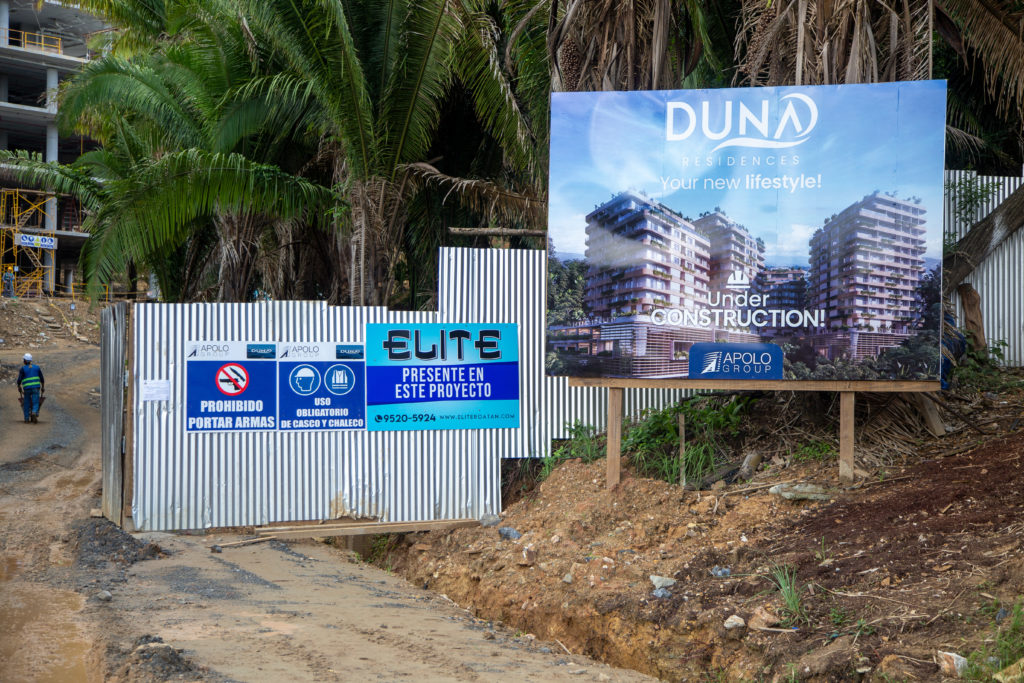
Government officials, on the other hand, say that investors have rejected business alternatives proposed since 2022. Fernando García, commissioner against the ZEDEs, affirmed that the government is willing to work with investors who “act in good faith.”
“Luis Redondo, president of the National Assembly, and I worked on propositions for investors for several weeks. The Honduran government is willing to open dialogues with ZEDE investors, even though these economic zones are absolutely unconstitutional,” García told Contracorriente.
He says that investors are facing the consequences of poor legal advice and acts of corruption involving former public officials.
“These investors were deceived. How is it possible that legal advisors did not warn them of the risks? It would be naive to disregard constitutional and international law, as well as the difference between a concession that cedes near-total sovereignty and one that is granted for public works, ports, airports, and the partial privatization of state-owned companies. These are totally different concepts.”
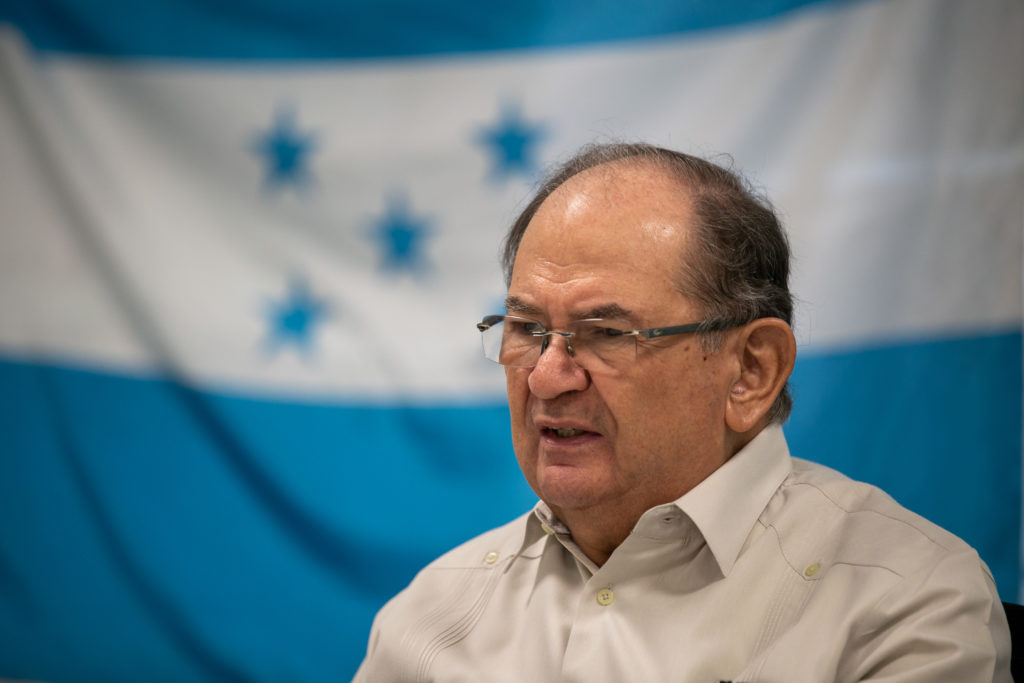
ZEDEs, extraterritorial tax and customs regimes, were established in 2013 during the administration of Porfirio Lobo Sosa with the goal of developing financial institutions, private cities, among others. Three ZEDEs were established in Honduras: Próspera in Roatán, Islas de la Bahía department; Orquídea in San Marcos de Colón, Choluteca department; and Ciudad Morazán in Chóloma, Cortés department.
Since the beginning, social movements have expressed their opposition, arguing that ZEDEs violate principles of sovereignty established in the Constitution. Despite this, these regimes were allowed to operate during the administrations of Lobo Sosa (2010 – 2013) and Juan Orlando Hernández (2014 – 2022).
Treason: The great dilemma
The Supreme Court’s ruling has sparked debate about whether congressional representatives who voted for this law should be tried as traitors. On June 12, 2013, the National Assembly, with 102 votes in favor and 26 against, passed the ZEDE law, even though its precursor, REDs (Ley Orgánica de las Regiones Especiales de Desarrollo), had been found unconstitutional by the Supreme Court.
Article 375 of the Honduran Constitution states that every citizen, whether vested with authority or not, must defend the constitution and that those who infringe upon this precept, as well as public officials who fail to uphold the constitution, will face trial.
Moreover, Article 555 of the penal code stipulates that “individuals involved in actions that undermine territorial integrity, allowing partial or total control by a foreign power, jeopardizing sovereignty or threatening the integrity of the state, are committing acts of treason, face up to 20 years in prison and are disqualified from holding public office for twice as long as the prison sentence.”
Likewise, on September 23, Jari Dixon Herrera, Libre Party congressman, filed a complaint to the Attorney General’s Office aimed at indicting “persons who, directly or indirectly, were part of the installation of ZEDEs in Honduras. In other words, in selling national territory to investors.”
“We ask the Attorney General’s Office to request the National Assembly an official list of congressional representatives who passed this infamous decree,” said Herrera in a press release.
A 2019 amendment of Honduras’ Organic Law states that legislative functions are “inviolable” and cannot be “delegated.” “Consequently, actions by congressional representatives within this framework do not carry civil, criminal, or administrative liability.”
However, human rights lawyer Joaquín Mejía says that this doesn’t grant absolute immunity to current or former congressional representatives since this precept is not invoked by the constitution but is simply a secondary law.
Article 375 of the Honduran Constitution states that, following an absolute majority vote in the National Assembly, those who threaten the constitutional order are subject to a partial or total asset forfeiture for the purpose of compensating the state.
In the aftermath of the repeal of the ZEDE law in 2022, Pŕospera filed an international lawsuit before the International Centre for Settlement of Investment Disputes (ICSID), demanding $10.7 in compensation for financial losses. Following the Supreme Court’s ruling, ZEDEs legal representatives threatened to file additional lawsuits in international courts.
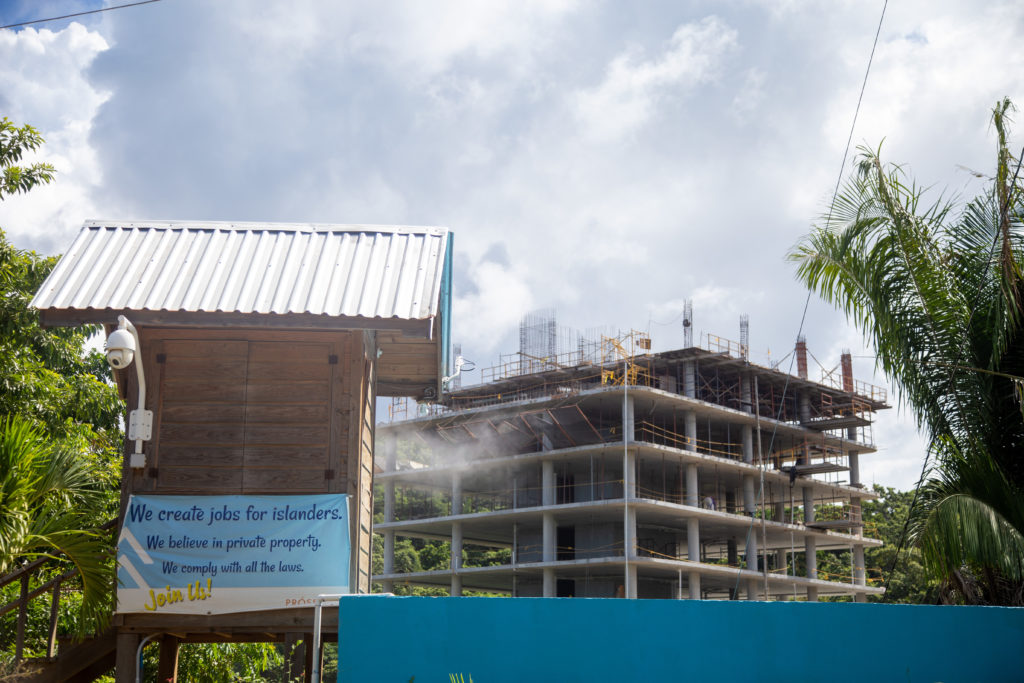
As part of the Castro government’s initiative, Honduras is in the process of withdrawing from ICSID.
Delayed ruling
It’s important to point out that there were six attempts to overturn the ZEDE law between 2014 and 2021, and the Supreme Court ruled in favor of only one: a request by the National Autonomous University of Honduras (UNAH) seeking to declare Article 34 of the ZEDE law unconstitutional. Legal experts consider that the article, which outlines educational and curricular policy at all levels, violates at least three articles of the constitution.
Although the request was approved on November 21, 2021, magistrates serving in the Constitutional Chamber of the Supreme Court from 2016 to 2023 did not process it.
But it wasn’t until August 9, 2024, when the newly appointed magistrates ruled in favor of the request. Since the ruling was not unanimous, Wagner Vallecillo, president of the Constitutional Chamber, submitted the request to a vote in a plenary session, which concluded in the September 20 ruling that found ZEDE’s legal framework unconstitutional.
According to Mejía, the retroactive ruling is justified since this is the only way the government can stall constitutional infringements against sovereignty and the territory. “The Constitution doesn’t prohibit rulings from being applied retroactively. It stipulates that rulings take immediate effect.”
Amendments to the Constitution aimed at incorporating the ZEDEs are not legitimate, Mejía says, because in 2013 the National Assembly failed to uphold fundamental constitutional articles and approved laws that threaten territorial integrity, equality, and sovereignty.
“In 2013, the Constitution was amended by an individual who did not have the legal power to do so, violating fundamental principles of our legal framework. The power to make those decisions is only conferred to the people by means of a national referendum and not to the National Assembly.”
Mejía made an argument for the retroactive ruling issued by the Supreme Court. If the National Assembly amends the constitution to legalize the sexual exploitation of children, does this mean that the Supreme Court cannot retroactively issue a ruling to ban such barbarity? This would be absurd. If this were the case, the Supreme Court could not help children who had been sold within this legal framework, and they would remain sex slaves for the rest of their lives.

